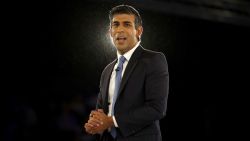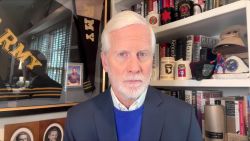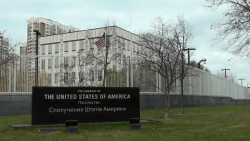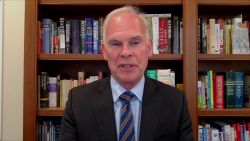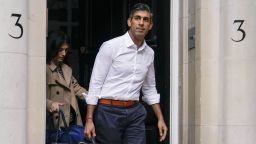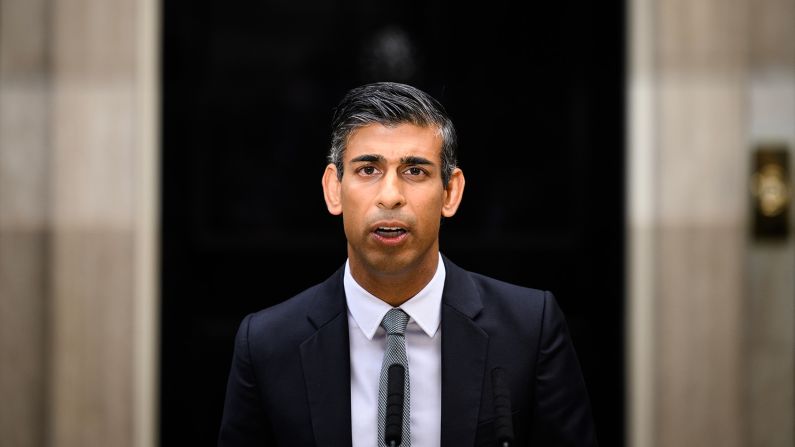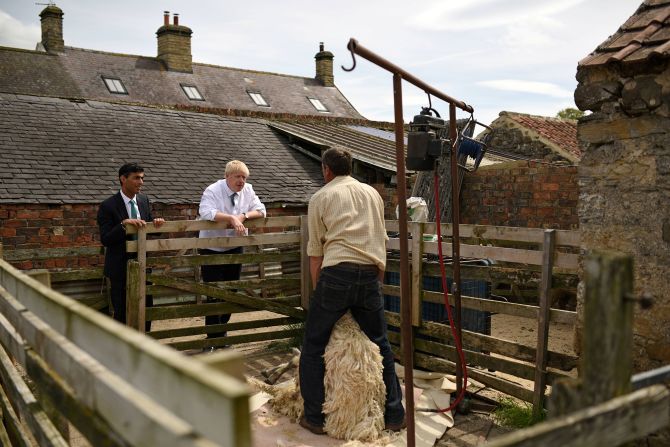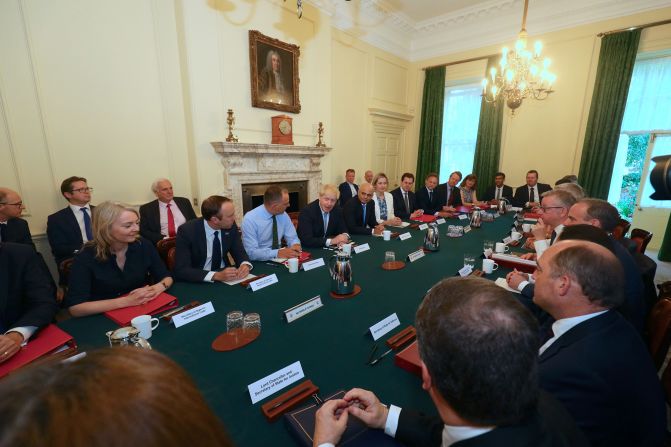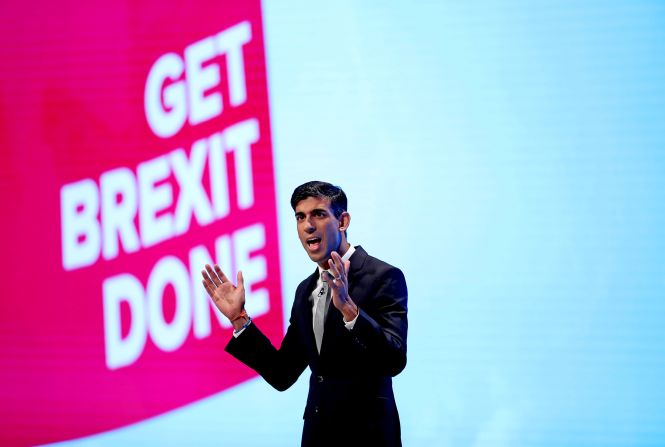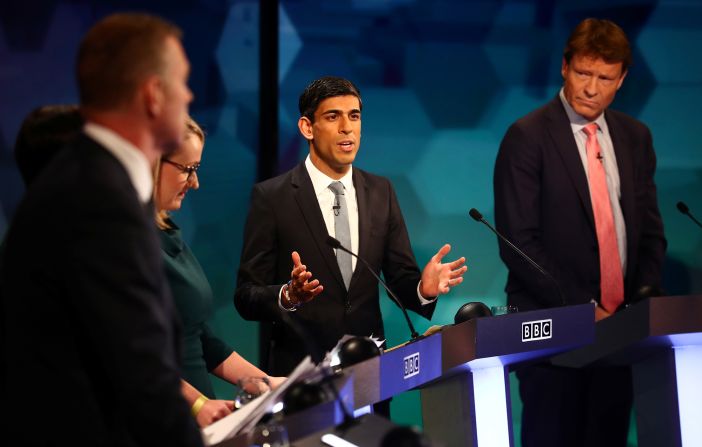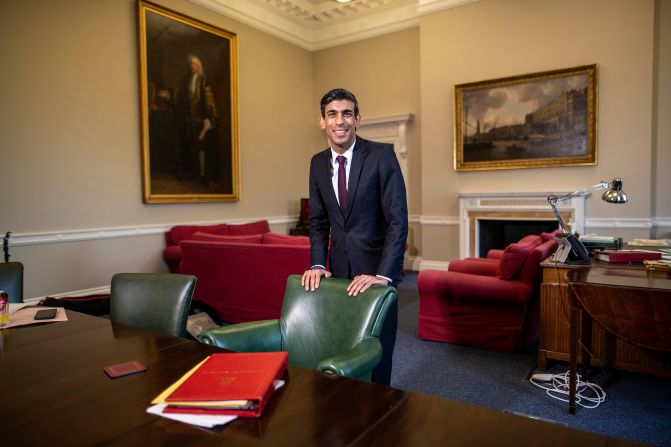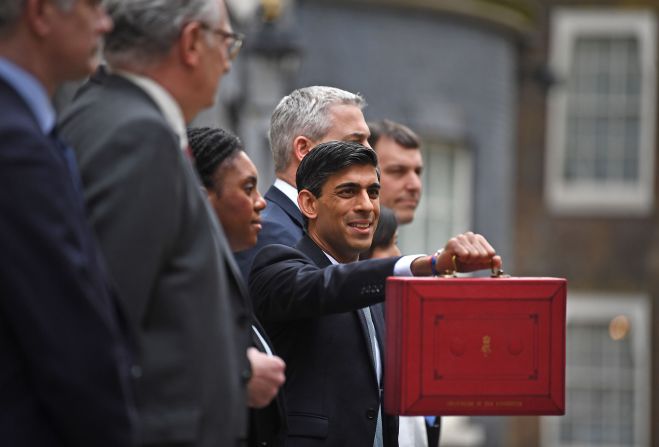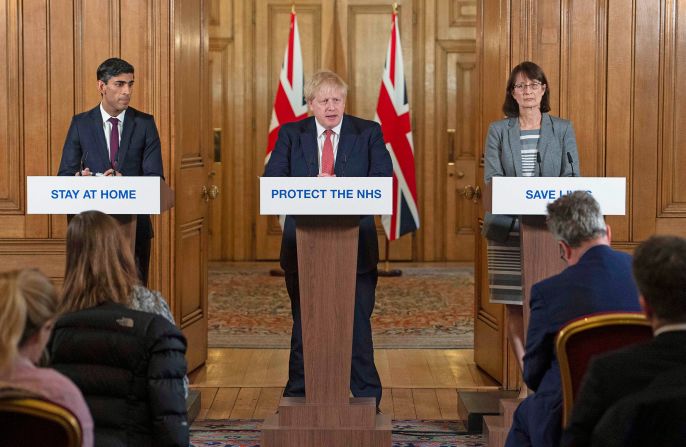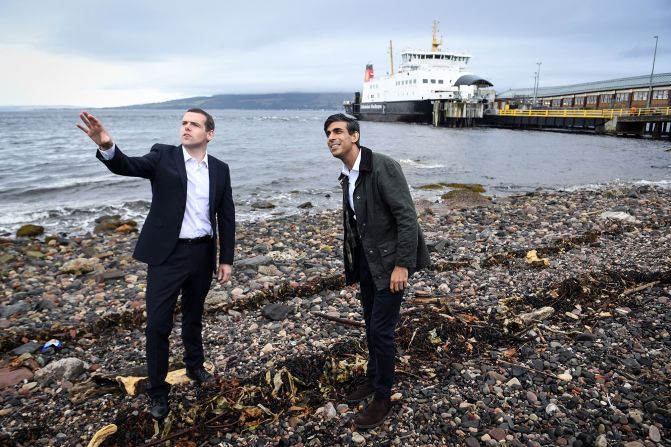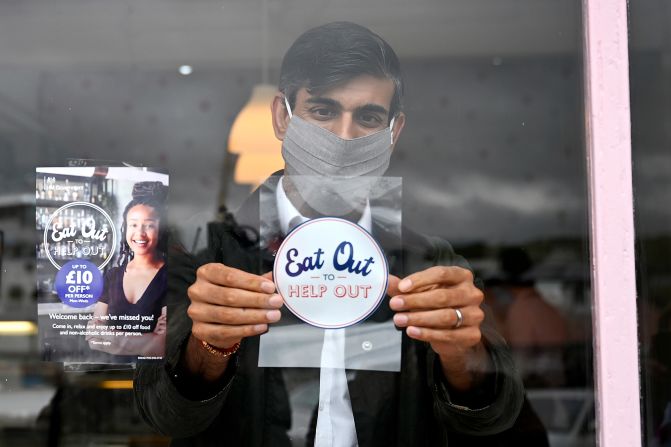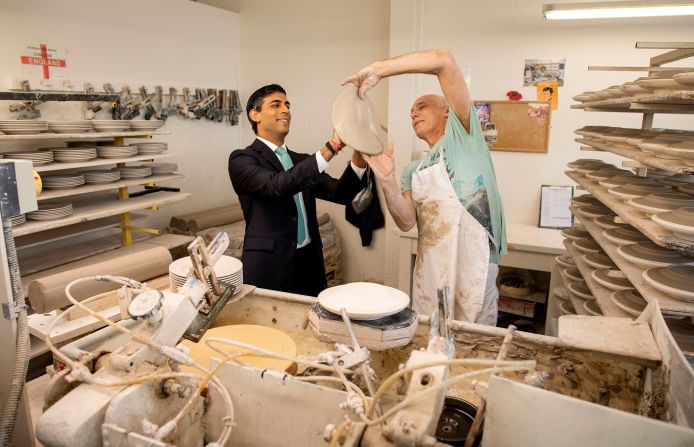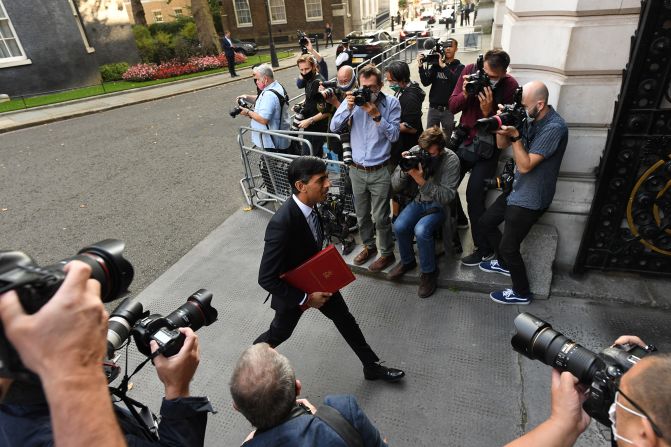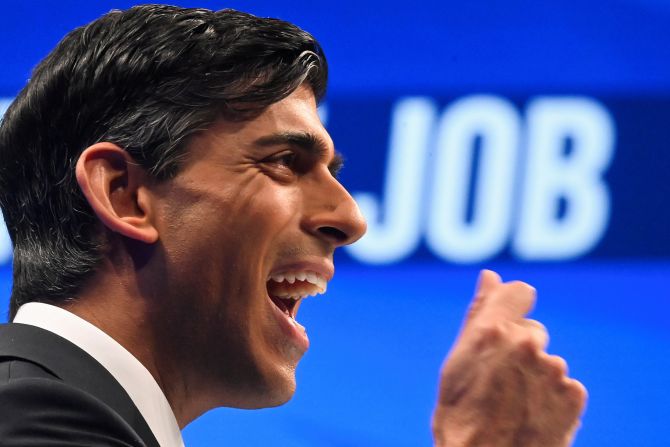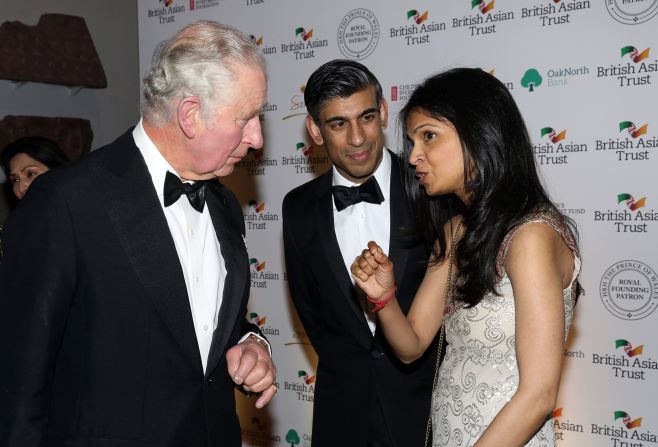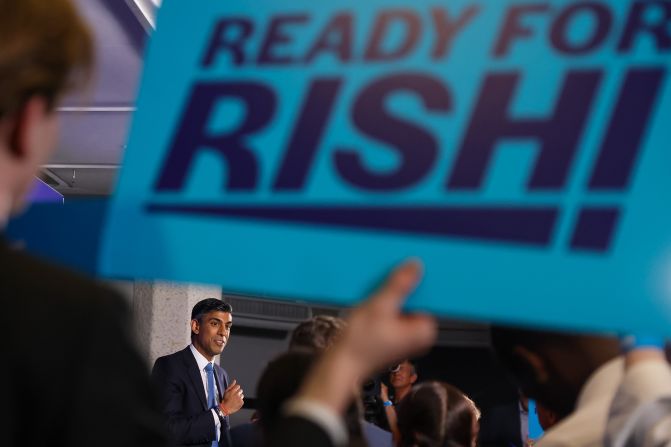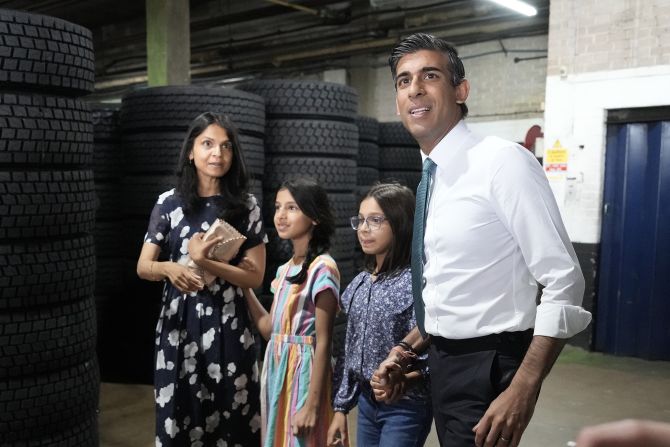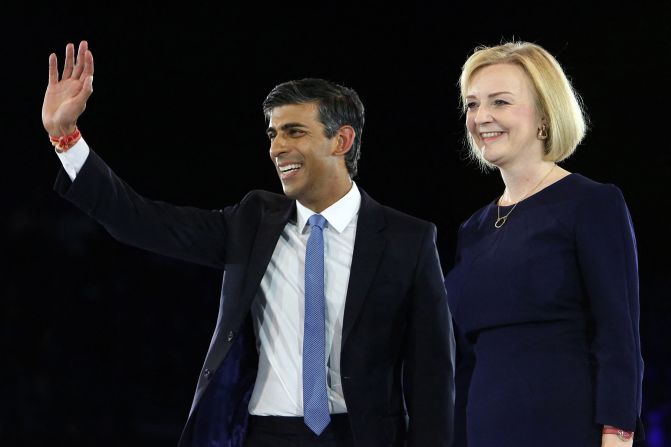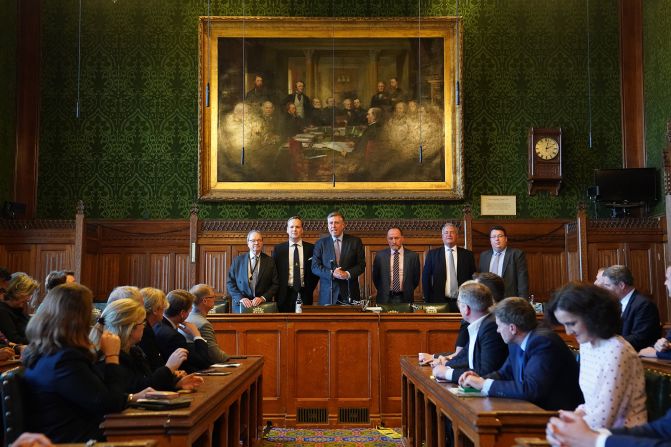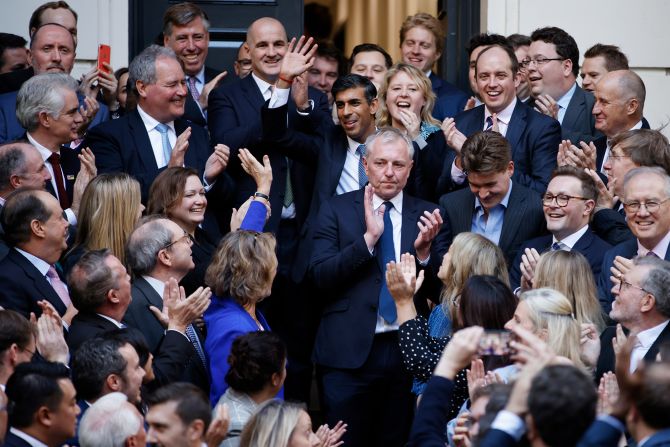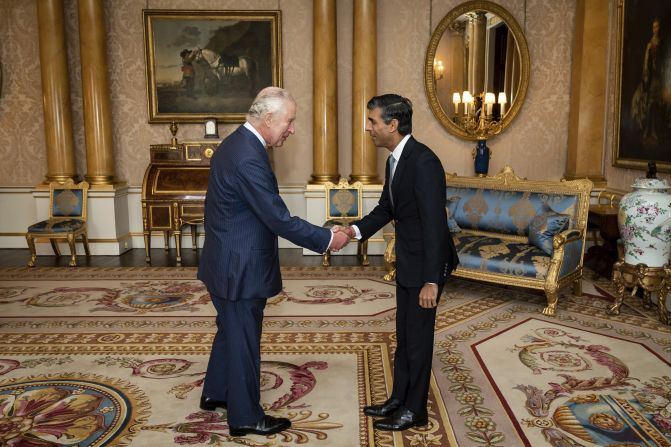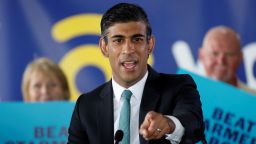Rishi Sunak officially became Britain’s third prime minister in seven weeks on Tuesday, acknowledging that “mistakes were made” by his predecessor as he sought to bring stability to the UK after months of political and economic turmoil.
He was appointed by King Charles III at Buckingham Palace in London shortly after Liz Truss tendered her resignation to the monarch following a shambolic 50-day tenure which shook Britain’s economy to its core.
Sunak becomes the first person of color and the first Hindu to lead Britain after winning a fast-tracked Conservative Party leadership contest on Monday. At 42, he is also the youngest person to take the office in more than 200 years.
After being invited to form a government by the King, Sunak returned to Downing Street where he made a speech aimed at alleviating some of the concerns of the public and laying out aspects of what his premiership will look like.
In his first speech as Britain’s new prime minister, Sunak said the nation was in “profound economic crisis,” before paying tribute to Truss.
“I admired her restlessness to create change. But some mistakes were made. Not borne of ill will or bad intentions. Quite the opposite in fact, but mistakes nonetheless,” he said. “And I have been elected as leader of my party, and your prime minister in part, to fix them. And that work begins immediately.”
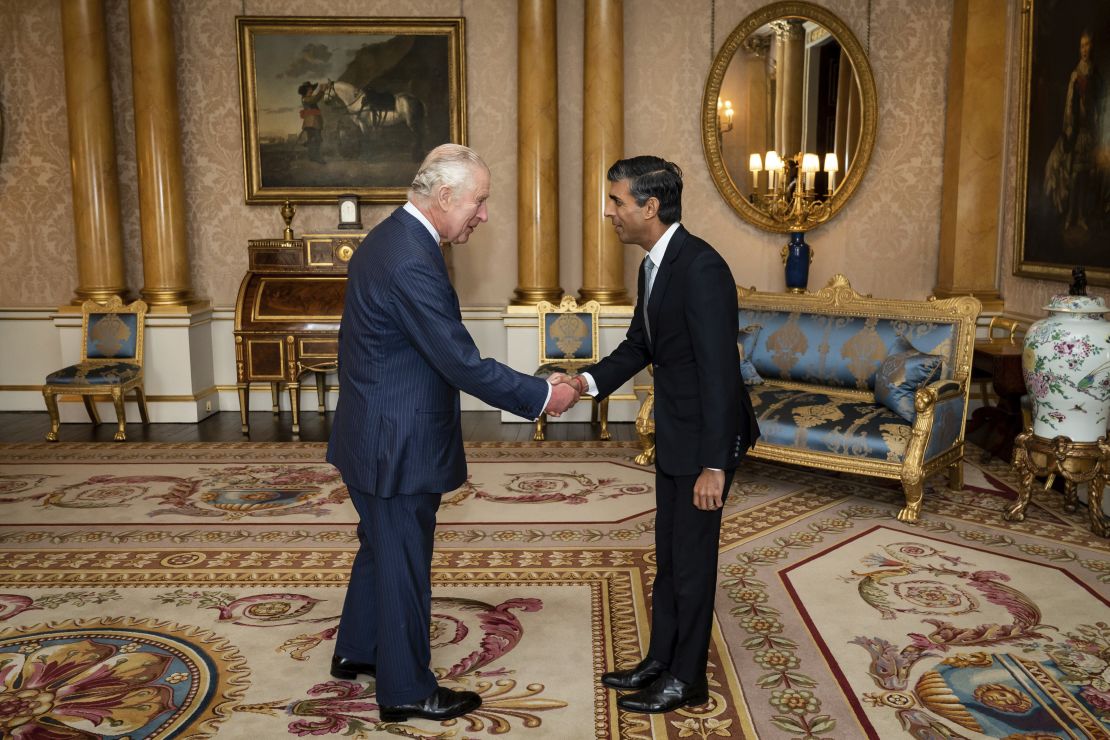
Sunak highlighted his experience as finance minister during the pandemic to illustrate how he intends to tackle the challenges ahead.
“You saw me during Covid doing everything I could to protect people and businesses, with schemes like furlough. There are always limits, more so now than ever. But I promise you this: I will bring that same compassion to the challenges we face today,” he said.
“The government that I lead will not leave the next generation – your children and grandchildren – with a debt to settle that we were too weak to pay ourselves. I will unite our country, not with words but with action.”
Sunak added: “I will work day in and day out to deliver for you. This government will have integrity, professionalism and accountability at every level.”
Earlier Tuesday, Truss delivered her outgoing speech at the Downing Street podium before making the short car journey to Buckingham Palace.
Despite a disastrous tenure which saw her become Britain’s shortest serving prime minister in history, Truss appeared full of confidence and smiling, as she called her time in office a “huge honor,” later adding that “brighter days lie ahead.”
“We simply cannot afford to be a low growth country where the government takes up an increasing share of our national wealth, and where there are huge divides between different parts of our country,” Truss said on the economy. “We need to take advantage of our Brexit freedoms to do things differently. This means delivering more freedom for our own citizens and restoring power to democratic institutions.”
Truss concluded by wishing Sunak “every success for the good of our country.”
In pictures: Former UK Prime Minister Rishi Sunak
Tuesday afternoon saw Sunak begin to form his new cabinet, bringing back lawmaker Dominic Raab as deputy prime minister, justice secretary and lord chancellor, and keeping Jeremy Hunt in the role of UK finance minister.
Hunt was appointed as chancellor earlier this month after Truss sacked his predecessor Kwasi Kwarteng. Hunt subsequently reverted most of Kwarteng’s main policies proposed in September’s controversial “mini-budget.”
Sunak brought Suella Braverman back as Home Secretary, a role she resigned from last week under Truss’s government, hastening the end of the former Prime Minister’s term. James Cleverly and Ben Wallace will remain in their roles of Britain’s foreign secretary and defence secretary, respectively.
Challenges ahead for new PM
Tuesday’s developments are a stunning turnaround for the man whose resignation as finance minister was instrumental in bringing down Boris Johnson’s government earlier this year, but then lost the summer leadership race. At that point, it appeared Sunak’s ambitions for the highest political role in the country were over.
And yet, when Truss’ premiership imploded last week, Sunak quickly became a frontrunner to take over the party once more. Now in the top job, he faces an overflowing in-tray of challenges to steer the country out of crisis.
His own party is divided and has lost ground to the opposition Labour party in opinion polls following four months of political mayhem and financial market chaos. At the same time, Britain is facing major economic crisis, with many economists believing it is already in recession.
He is already under intense fire from opposition politicians, who are calling for a general election.
Labour Party leader Keir Starmer congratulated Sunak on becoming the first British-Asian prime minister on Tuesday, but reiterated calls for a public vote.
“The Tories have crashed the economy, with low wages, high prices and a cost of living crisis. The public needs a fresh start and a say on Britain’s future,” Starmer said.
Sunak, like Truss, has not had to win a general election to become prime minister because the Conservatives are still the largest party in the House of Commons, therefore their leader automatically becomes prime minister.
It’s not unusual for a prime minister to come into office without an election – four of the last five British prime ministers first entered the role without a general election. But the fact that Sunak is the UK’s third prime minister since the last poll in 2019 and the second to come into power without a public vote adds to the pressure.
According to the law, the next general election must happen no later than in January 2025. With Labour way ahead in opinion polls, it is very unlikely he will take that step.
Sunak is under no obligation to call a vote and appeared to rule out the possibility in his Downing Street address when he said that he’d “always be grateful to Boris Johnson for his incredible achievements.”
He added: “I know he would agree that the mandate my party earned in 2019 is not the sole property of any one individual. It is a mandate that belongs to and unites all of us.”
Johnson later offered his congratulations to the new prime minister in a post on Twitter, calling his appointment a “historic day.”
“This is the moment for every Conservative to give our new PM their full and wholehearted support,” Johnson said.
CNN’s Lauren Kent, Allegra Goodwin and Rob Picheta contributed to this report.



